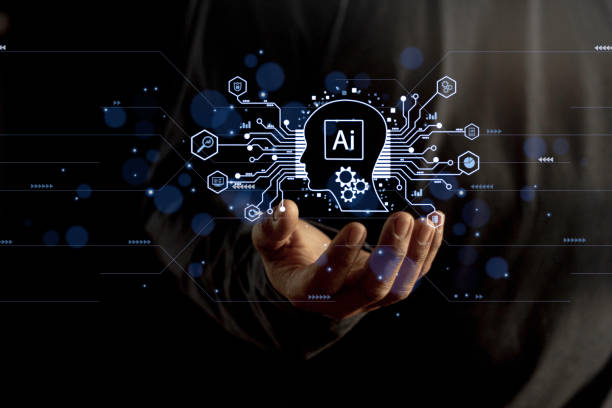### Introduction to Artificial Intelligence and its Impact on the Job Market
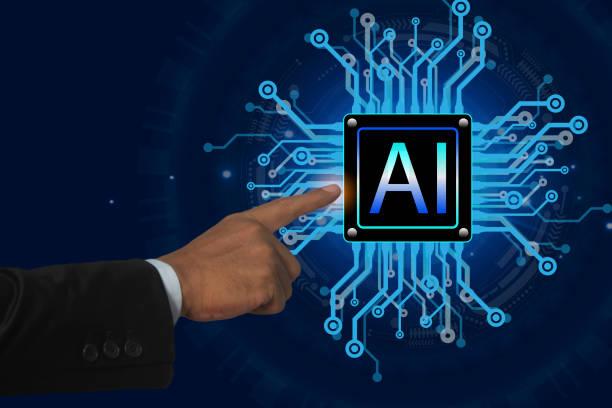
Artificial Intelligence (#AI) is rapidly advancing and has a significant impact on various industries, including the job market.
With capabilities in learning, reasoning, and problem-solving, this technology has the potential to create profound transformations in how things are done.
In this introduction, we examine the concept of artificial intelligence, its types, and its initial impacts on the job market.
Artificial intelligence is not just a term, but a collection of techniques and algorithms that allow machines to perform tasks that usually require human intelligence.
This includes machine learning, natural language processing, computer vision, and robotics.
The impact of artificial intelligence on the job market is multifaceted.
On the one hand, the automation of processes leads to increased productivity and reduced costs.
On the other hand, some traditional jobs may become obsolete, while new jobs are created that require new skills.
The future of AI employment is a critical issue that needs careful consideration.
Are you tired of your company’s website not meeting your expectations? With Rasaweb, design a professional website that showcases the true face of your business.
✅ Increase attraction of new customers and sales leads
✅ Increase the credibility and trust of your brand among the audience
⚡ Get a free website design consultation!
Jobs at Risk of Automation
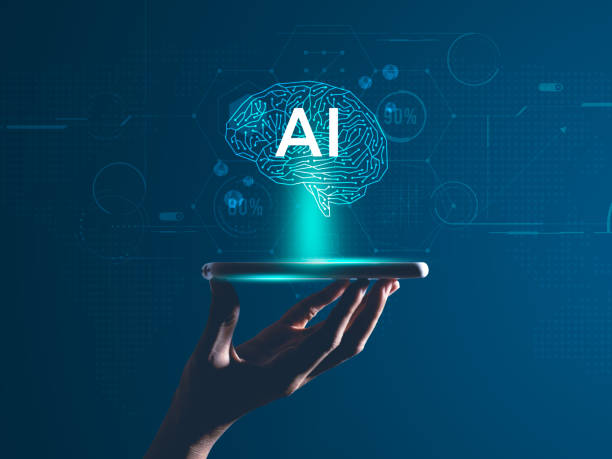
With the increasing advancement of artificial intelligence, many jobs are at risk of automation.
Jobs that involve repetitive and routine tasks are the most vulnerable.
For example, data entry, document processing, and customer service are among the areas where artificial intelligence and robots are increasingly being used.
This does not mean that these jobs will completely disappear, but roles and responsibilities may change and require newer skills.
Understanding which jobs are most at risk is essential for job seekers and employers to prepare for the future.
The future of AI employment requires continuous adaptation and learning.
Jobs in transportation, manufacturing, and even some office jobs may also face automation.
In these jobs, artificial intelligence will lead to changes in the structure and nature of work.
New Jobs Created by Artificial Intelligence
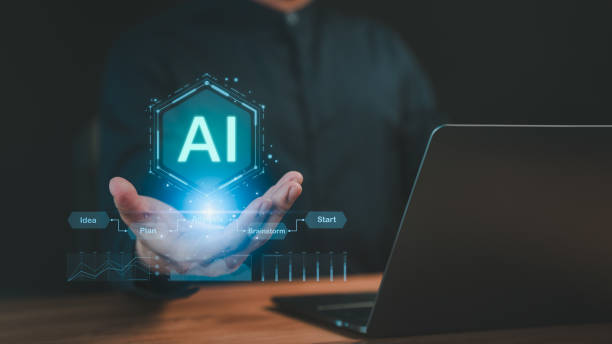
While artificial intelligence threatens some jobs, it also creates many new job opportunities.
The development, deployment, and maintenance of artificial intelligence systems require skilled professionals in various fields.
Artificial intelligence engineers, data scientists, machine learning specialists, and robotics experts are currently in high demand, and this demand is expected to increase in the future.
Also, jobs in the field of artificial intelligence ethics, data privacy, and cybersecurity are also emerging.
These new jobs require a combination of technical and human skills.
In addition, artificial intelligence can help people to perform more efficiently and effectively in their current jobs.
For example, AI-based tools can help doctors diagnose diseases, lawyers review legal documents, and marketers analyze data.
The future of AI employment is not only a threat, but also an opportunity for growth and innovation.
| Job Title | Required Skills |
|---|---|
| Artificial Intelligence Engineer | Machine Learning, Python, TensorFlow |
| Data Scientist | Statistics, Data Analysis, SQL |
| Robotics Specialist | Programming, Mechanics, Electronics |
Skills Needed to Succeed in the Age of Artificial Intelligence

To succeed in the age of artificial intelligence, people need a set of technical and soft skills.
Technical skills include knowledge of programming, machine learning, data analysis, and robotics.
However, soft skills such as problem-solving, critical thinking, creativity, and communication are just as important.
Artificial intelligence can automate many routine tasks, but humans still excel in strategic thinking, complex decision-making, and interacting with others.
In addition, lifelong learning skills and adaptability are essential to keep up with rapid technological changes.
People who are able to learn new skills and adapt to new environments will have the best chance of success in the future of AI employment.
Continuous training and updating knowledge is the key to maintaining competitiveness in the job market.
Did you know that 94% of first impressions of a company are related to its website design?
Rasaweb helps you create the best first impression by providing professional corporate website design services.
✅ Create a professional and reliable image of your brand
✅ Easier attraction of potential customers and improved online position
⚡ Get free corporate website design consultation
The Role of Education in Preparing the Workforce for the Future

Education systems play a vital role in preparing the workforce for the future.
Curricula should be designed to teach the skills needed for the age of artificial intelligence.
This includes programming, data science, critical thinking, and problem-solving skills.
Also, education should emphasize lifelong learning and the development of soft skills.
Students should be encouraged to constantly learn new skills and adapt to technological changes.
In addition, collaboration between universities and industry is essential to ensure that training is aligned with the needs of the job market.
Investing in education is the best way to ensure that the workforce is ready for the future of AI employment.
Providing specialized training courses and practical workshops can also help people acquire the necessary skills.
Ethical and Social Challenges of Artificial Intelligence in the Workplace
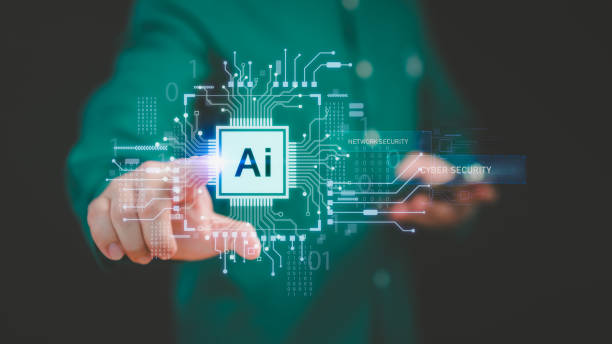
The use of artificial intelligence in the workplace poses several ethical and social challenges.
One of the most important challenges is the issue of discrimination.
Artificial intelligence algorithms can unintentionally reproduce existing biases in training data and lead to unfair decisions in hiring, promotion, and other work-related areas.
Also, the issue of data privacy is very important.
The collection and use of employees’ personal data must be done in accordance with ethical and legal principles.
In addition, there are concerns about job losses and increasing economic inequality.
To address these challenges, there is a need to develop policies and regulations that ensure the ethical and responsible use of artificial intelligence.
The future of AI employment should be planned with its ethical and social aspects in mind.
Creating equal opportunities and protecting employees’ rights should be prioritized.
Industries Most Affected by Artificial Intelligence
![]()
Artificial intelligence is already having a profound impact on various industries, and this impact is expected to increase in the future.
Some of the industries most affected by artificial intelligence include healthcare, finance, manufacturing, transportation, and retail.
In healthcare, artificial intelligence can help diagnose diseases, develop drugs, and provide personalized care.
In the financial industry, artificial intelligence can be used to detect fraud, manage risk, and provide automated financial services.
In manufacturing, artificial intelligence can help optimize processes, improve quality, and reduce costs.
In transportation, artificial intelligence can help develop self-driving cars and improve the efficiency of transportation systems.
And in retail, artificial intelligence can help provide personalized shopping experiences and optimize the supply chain.
The future of AI employment in these industries is very bright and there are many opportunities for innovation and growth.
| Industry | Applications of Artificial Intelligence |
|---|---|
| Healthcare | Disease diagnosis, drug development |
| Finance | Fraud detection, risk management |
| Manufacturing | Process optimization, quality improvement |
How Can We Prepare for the Changes Caused by Artificial Intelligence?
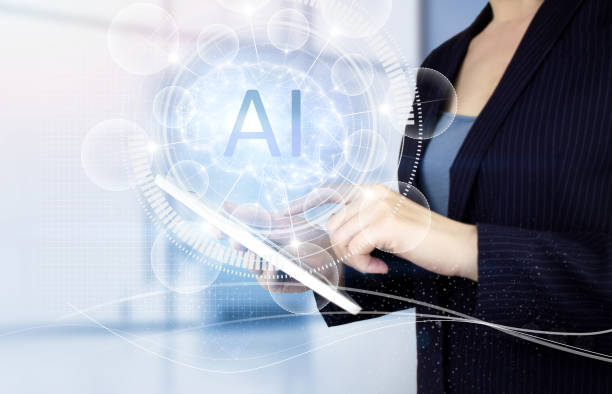
Preparing for the changes caused by artificial intelligence requires a proactive and forward-thinking approach.
People should continuously update their skills and learn new skills that are aligned with the needs of the new job market.
This includes learning programming, data science, data analysis, and other AI-related skills.
Also, people should strengthen their soft skills, such as problem-solving, critical thinking, creativity, and communication.
In addition, creating professional networks and connecting with experts active in the field of artificial intelligence can help people better understand the opportunities and challenges ahead.
Governments and organizations also have an important role to play in preparing the workforce for the future.
They should increase investment in education and provide training and support programs to help people acquire the necessary skills.
The future of AI employment requires a joint effort of individuals, governments and organizations.
Are you annoyed by losing customers who have visited your site to shop?
Rasaweb is your specialized solution for having a successful online store.
✅ Significantly increase your online sales
✅ Create a professional brand and trust with customers⚡ Get free consultation from Rasaweb experts!
The Future of AI Employment: Opportunities and Challenges

The future of AI employment brings both opportunities and challenges.
Opportunities include creating new jobs, increasing productivity, and improving the quality of life.
Challenges include job losses, increasing economic inequality, and ethical and social issues.
To take advantage of opportunities and address challenges, a balanced and forward-looking approach is needed.
Policies and regulations should be designed to ensure the ethical and responsible use of artificial intelligence and protect the rights of employees.
Education should be designed to teach the skills needed for the age of artificial intelligence.
Cooperation between governments, organizations and individuals is essential to create a bright and sustainable future.
The future of AI employment is a complex issue that requires careful consideration and planning.
Likely Scenarios for the Future of the Job Market
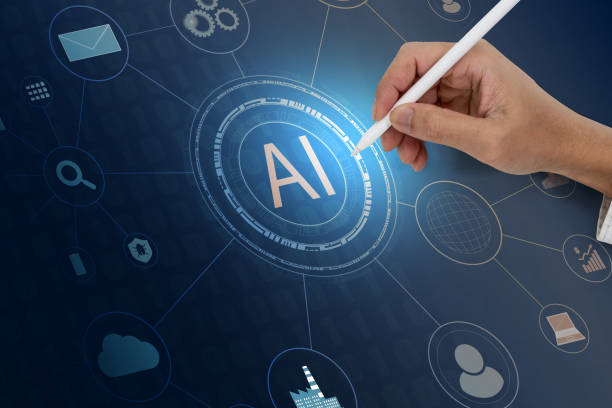
Given the rapid advancement of artificial intelligence, various scenarios for the future of the job market are conceivable.
One scenario is that artificial intelligence will lead to widespread automation of jobs and a large number of people will lose their jobs.
In this scenario, governments should provide support programs to help the unemployed and reduce economic inequality.
Another scenario is that artificial intelligence will lead to the creation of new jobs and people will be able to learn new skills and succeed in these new jobs.
In this scenario, education plays a vital role in preparing the workforce for the future.
The third scenario is that artificial intelligence will lead to a change in the nature of jobs and people will be able to work more efficiently and effectively in their current jobs.
In this scenario, people should continuously update their skills and learn new skills.
The future of AI employment depends on how this technology is managed and used.
Choosing the right approach can lead to a bright and sustainable future for all.
Frequently Asked Questions
| Question | Answer |
|---|---|
| What impact will artificial intelligence have on the future job market? | Artificial intelligence automates repetitive jobs, but at the same time will create new and more complex jobs in areas such as development, maintenance and training of artificial intelligence systems. |
| Which jobs are most at risk of being replaced by artificial intelligence? | Jobs that involve repetitive, rule-based tasks with low need for creativity or emotional intelligence, such as some manufacturing, data entry, and simple customer service jobs, are most at risk. |
| What skills are essential for success in a future career with the presence of artificial intelligence? | Skills such as critical thinking, complex problem solving, creativity, emotional intelligence, data literacy, the ability to work with artificial intelligence, and lifelong learning are of high importance. |
| Will artificial intelligence cause widespread unemployment? | Some jobs will be lost, but history has shown that new technologies, instead of widespread unemployment, reshape the job market and create new jobs. The need for adaptation and retraining is of utmost importance. |
| What new job opportunities are emerging with the emergence of artificial intelligence? | Jobs such as Machine Learning Engineer, Data Scientist, Artificial Intelligence Ethicist, Human-AI Interaction Designer, and Digital Transformation Consultant are among the new opportunities. |
| What is the role of education in preparing for a future career with artificial intelligence? | Education should focus on developing soft skills, computational thinking, digital literacy, and the ability to learn continuously to prepare people for future changes. |
| How can I prepare myself for the job market changes caused by artificial intelligence? | You can prepare yourself by learning new skills related to artificial intelligence and data, strengthening soft skills, developing critical thinking and creativity, and getting used to lifelong learning. |
| Will artificial intelligence ethics become an important career field? | Yes, given the increasing concerns about biases, privacy, and automated decision-making of artificial intelligence, the role of artificial intelligence ethics experts to ensure its responsible development will be crucial. |
| How important is human-artificial intelligence collaboration in the future career? | Human-artificial intelligence collaboration, rather than competition, shapes the future of the job market. Artificial intelligence can be a tool to increase productivity and focus human beings on more complex and creative tasks. |
| Which industries will be most affected by artificial intelligence? | Almost all industries will be affected, but areas such as healthcare, finance, transportation, manufacturing, education and customer service are pioneers in adoption and transformation by artificial intelligence. |
And other services of Rasa Web Advertising Agency in the field of advertising
Smart Reportage: A fast and efficient solution to increase site visits with a focus on Google advertising management.
Smart Brand Identity: A creative platform to improve click-through rates by designing an attractive user interface.
Smart Content Strategy: Professional optimization for managing campaigns using attractive user interface design.
Smart Google Ads: A combination of creativity and technology for managing campaigns by attractive user interface design.
Smart Social Media: An effective tool for user interaction with the help of Google advertising management.
And more than hundreds of other services in the field of internet advertising, advertising consulting and organizational solutions
Internet Advertising | Advertising Strategy | Advertisement Report
Resources
Does artificial intelligence create a new job?
,The impact of artificial intelligence on the labor market and the future of work
,The future career of artificial intelligence
,What is artificial intelligence? + How does it work?
? In order for your business to shine in the online world and reach its peak, Rasaweb Afarin Digital Marketing Agency is always with you by providing comprehensive services including WordPress website design, SEO, and social media management.
📍 Tehran, Mirdamad Street, next to the Central Bank, Kazerun South Alley, Ramin Alley No. 6

